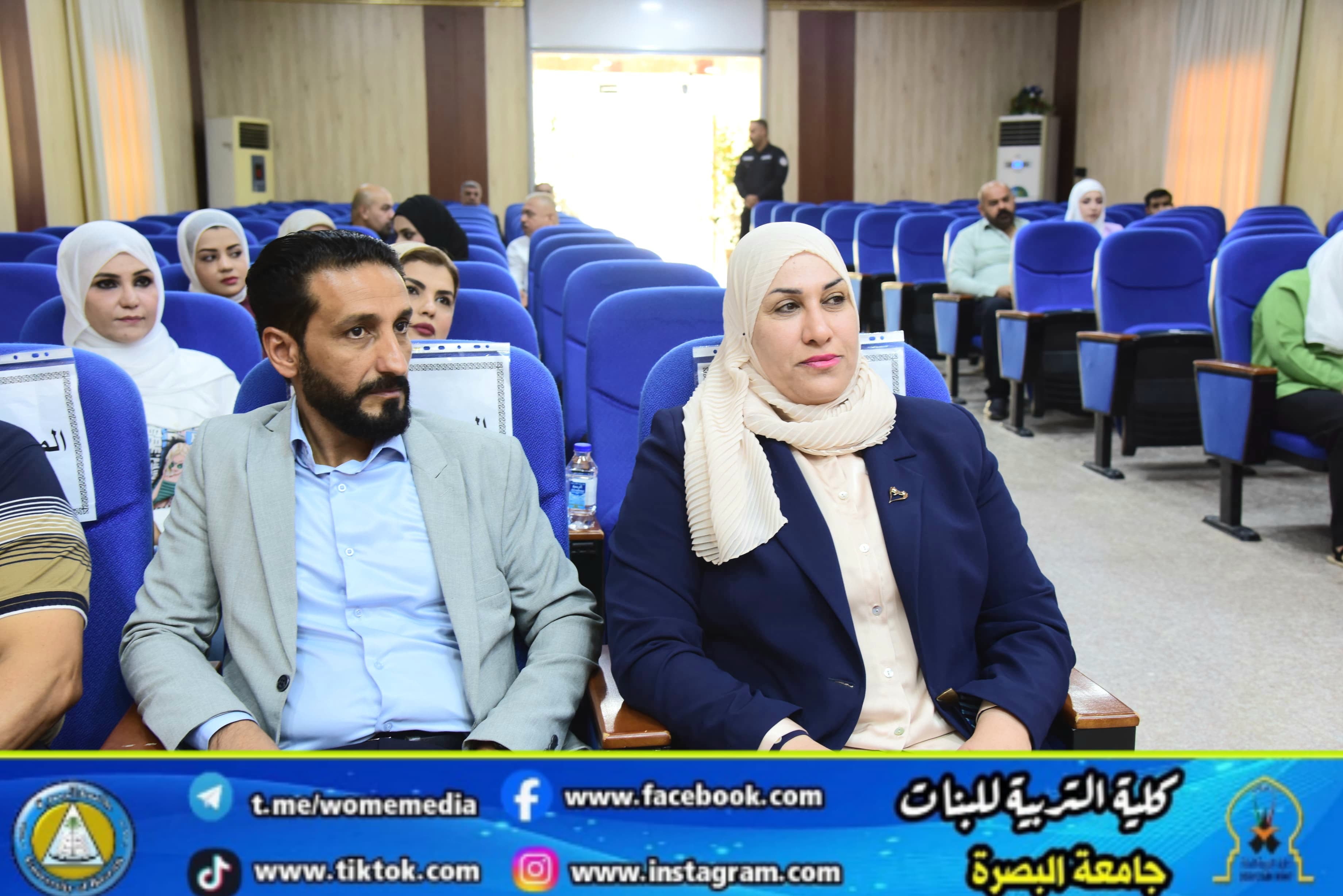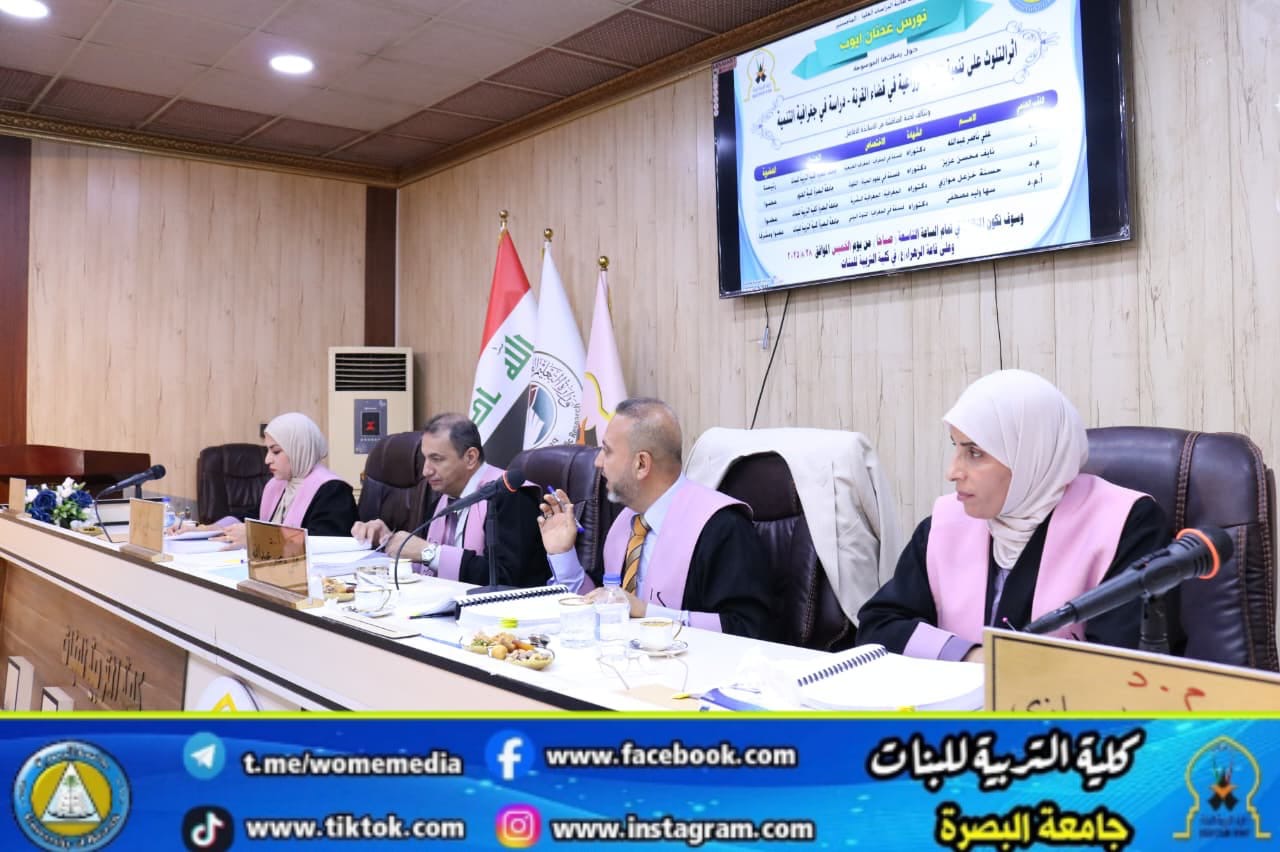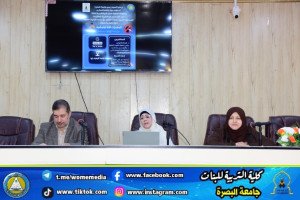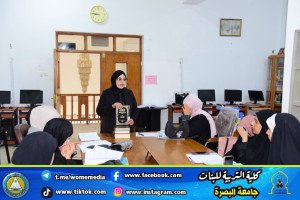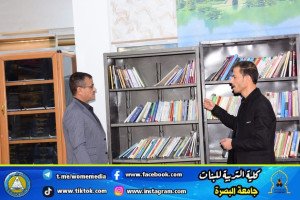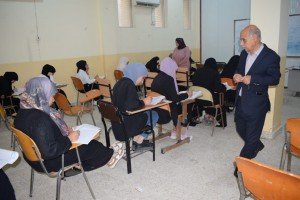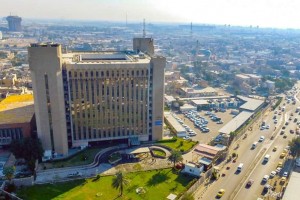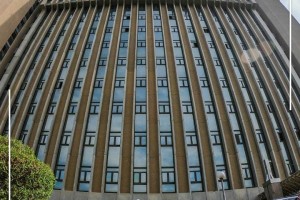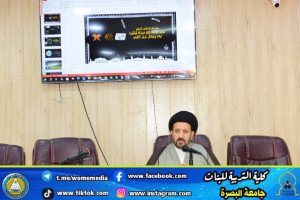
A master's thesis from the College of Education for Girls at the University of Basra examined "The Impact of Pollution on Agricultural Soil Development in Al-Qurna District: A Study in Development Geography."
The thesis, presented by researcher Nour Adnan Ayoub in the Department of Geography, aimed to improve agricultural soil in Al-Qurna District by reducing the pollution affecting it, in order to achieve better agricultural development. (40) soil samples were collected from various locations within the administrative boundaries of the study area during the dry and rainy agricultural seasons (2024–2025). The samples were analyzed in the laboratory to determine their physical and chemical properties and levels of contamination with heavy elements and petroleum hydrocarbons. The study also used multiple statistical analysis tools, including the T-test to detect significant differences between the two seasons and depths, in addition to the coefficient of determination (R²) to measure the relationship between pollutant concentrations and agricultural production, and to demonstrate the level of statistical significance using the P-value test.
The study concluded that agricultural soil pollution in Al-Qurna District results from the interaction of natural and human factors, such as climatic conditions and agricultural methods. It has also been shown that the oil industry directly contributes to increased pollution levels, leading to a reduction in crop diversity and a decline in agricultural production, negatively impacting opportunities for sustainable agricultural development in the region.
Department of Media and Government Communication/College of Education for Girls
